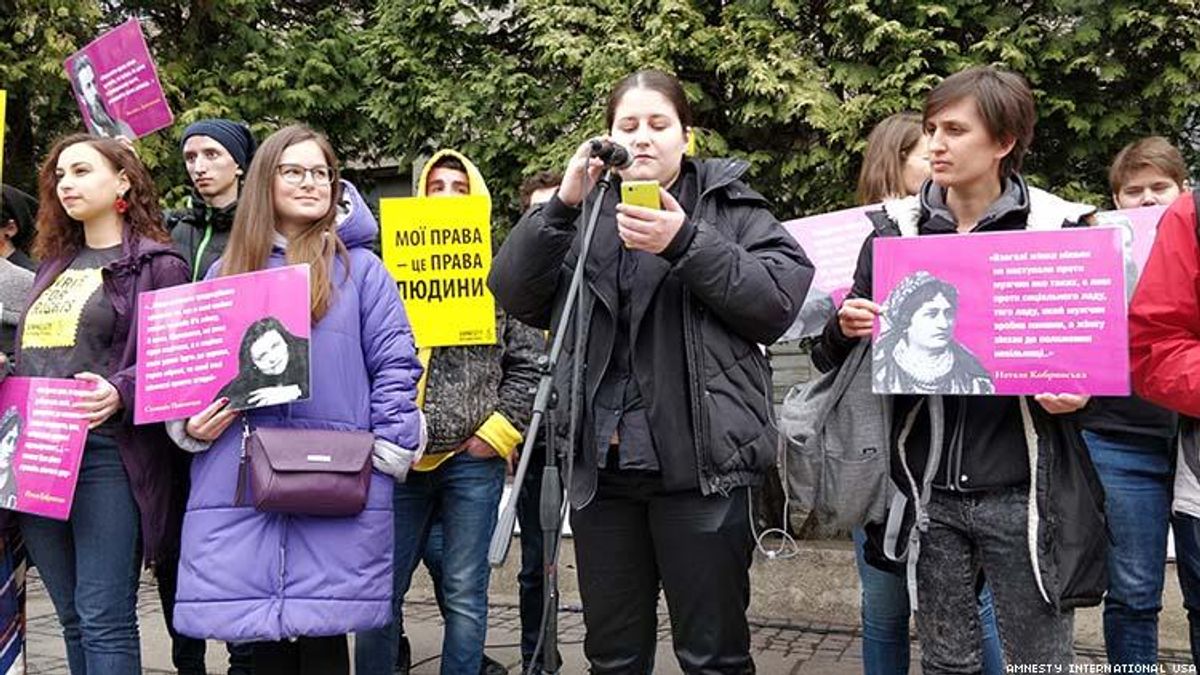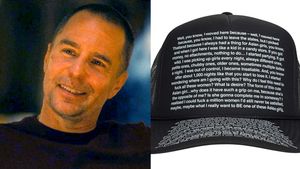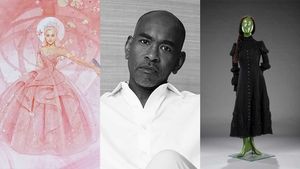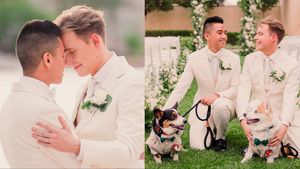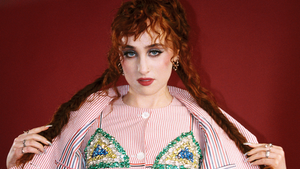On March 31, my country will go to the polls to choose Ukraine's next president. Whoever prevails will have to tackle an almost impossible set of challenges. Russia has occupied the Crimean Peninsula and continues its support for separatists in Ukraine's east, the weak economy forces many Ukrainians abroad, and corruption remains endemic.
Yet, while tackling these critical crises, the next president will also have to make an important decision. The government must decide whether it views LGBTI people like myself as human beings and whether it will live up to the promise of international law and of the Ukrainian constitution, which states that "all people are free and equal in their dignity and rights." I hope the U.S. government helps them decide in the affirmative.
I am an activist for LGBTI rights and gender equality from the city of Uzhgorod. Every International Women's Day for the past three years, I went in the city's square on March 8 to call attention to gender inequality. My message is simple: I believe all Ukrainians, regardless of their gender or sexual orientation, have the right to love who they want, to peacefully protest for change, and to live free from discrimination. But, for extremist groups in Ukraine, this is a bridge too far. In 2017 and again in 2018, I was brutally attacked by these extremists. Last year, six people doused me with red paint, causing chemical burns to my eyes. The campaign of violence directed at me eventually forced me to flee my hometown.
Unless pressured to act, authorities are reluctant to hold violent groups accountable. The police initially refused to qualify the attack on me as a hate crime and released my attackers after briefly detaining them. Some government officials are sympathetic to their cause. According to media reports, extremist groups receive government funding for "national patriotic education projects" that include children's summer camps and festivals.
Ukraine has a problem and we cannot look away from it. Finding videos of Ukrainian civil society activists attacked right under the authorities' watchful eye requires no great effort. Members of these groups are not bashful: they march in public, have headquarters in downtown Kyiv, and proudly celebrate their violence on social media. The U.S. State Department's own human rights report documents their attacks on journalists, ethnic minorities, lawyers, and others.
At the same time, for political reasons, many voices sympathetic to Russia's policies are eager to portray Ukraine as a fascist state and that all of its people as enthralled with extremism. This is a lie. While some in government coddle these groups, many more officials have been their targets, both on a local and national level. These extremists may have exerted a disproportionate measure of influence over the public discourse and intimidated activists through violence, but the overwhelming majority of Ukrainians reject their hate. Extremists have not polled above 5 percent in national elections. Personally, I've been overwhelmed by the love and support I've received from Ukrainians from all walks of life.
And Ukraine has made significant progress on human rights despite the rise of influence of the extremist groups. Kyiv Pride started as a marginal demonstration on the outskirts of the capital. Last year, 3,500 demonstrators took to downtown streets. Among them was U.S. Ambassador Marie Yovanovitch and 60 other U.S. embassy representatives. This year, after Amnesty International profiled my story and Ukrainian authorities were bombarded by a letter writing campaign on my behalf, the police in my home town ensured the security of my rally. But progress has been slow and is easily reversed. For every activist who is protected, many more are harassed, abused, and intimidated.
At issue is not an abstract principle but a fundamental battle over whether LGBTI and women can speak out and participate in society, and whether violent thugs can attack a young woman who demonstrates for her rights. The U.S. government can do so much to tip the scales in our favor.
First, the State Department must demand an end to all Ukrainian government support to these groups. The U.S. generously spends millions of dollars reforming my country's security services, supporting human rights, and building up our health system. It would be unfortunate for it to free up funding for extremist groups that seek to undermine all the tremendous good made possible with U.S. foreign assistance.
I started my activism career working at a community center for LGBTI people in Uzhgorod that offered peer to peer support and personally saw the powerful feeling of isolation experienced by young LGBTI people. U.S. officials should continue to make their presence felt at LGBTI events. The U.S. embassy has long supported Kyiv pride and when Ambassador Yovanovitch marches alongside people like me, she sends a powerful message: you are not alone. When the U.S. embassy sends observers to peaceful demonstrations for gender equality, local police face greater pressure to ensure the protestors' safety.
Finally, the State Department should publicly call on the government of Ukraine to put an end to the impunity enjoyed by extremist groups. They should leverage continuous diplomatic pressure to ensure that the police and the courts properly label hate crimes, investigate them and hold the perpetrators accountable.
It's no secret that now is a time of political division in the U.S. Yet one thing U.S. officials agree on is that they want to see Ukraine succeed as a free and open country that embraces human rights. They should know that they have the tools to make their hopes - and ours - a reality.
VITALINA KOVAL is a woman human rights defender and an LGBTI activist from Ukraine.
